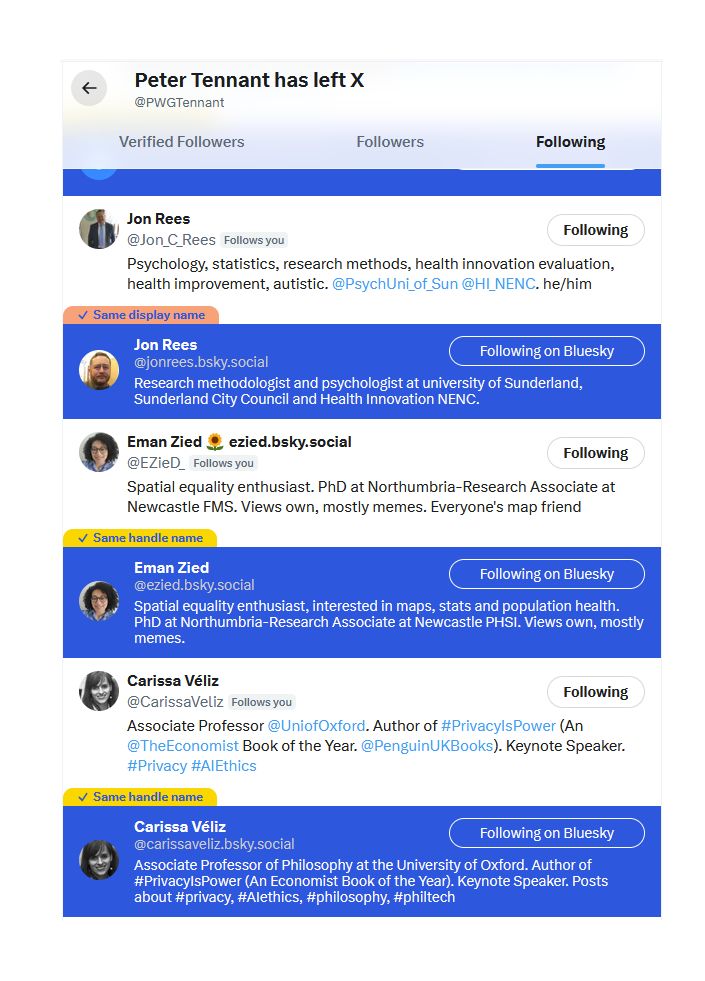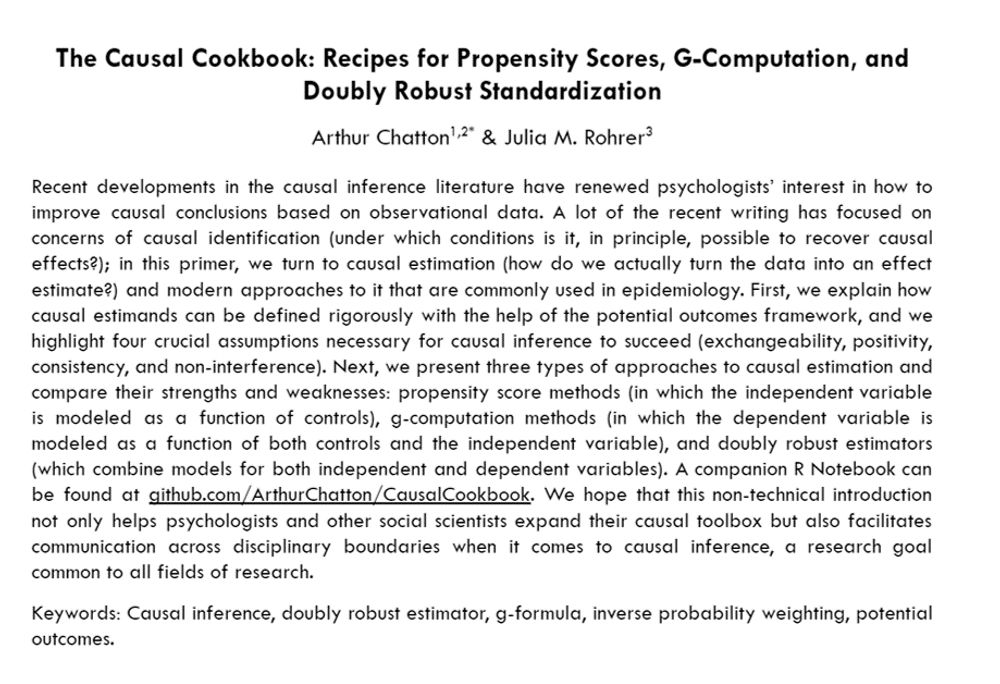


Day 2 of #ecdp2025 has kicked off with the keynote of Prof. Livio Provenzi on behalf of the DPB lab!
#EADP #devpsy
@trdevries.bsky.social
Postdoctoral researcher at Copenhagen Health Complexity Center | Interested in contextual determinants of mental health (childhood adversity and stressful life events in particular), complexity science, measurement, and open science



Day 2 of #ecdp2025 has kicked off with the keynote of Prof. Livio Provenzi on behalf of the DPB lab!
#EADP #devpsy

🤓Latent GOLD licenses for academic use are now freely available on the website! www.statisticalinnovations.com/shop/lg-6-1-...
06.01.2025 08:54 — 👍 9 🔁 2 💬 1 📌 0Great stuff! Thanks for adding me. Can you also add @jetteechterhoff.bsky.social?
25.11.2024 16:58 — 👍 0 🔁 0 💬 1 📌 0That’s great! Thanks for setting it up. Could you add both me and @jetteechterhoff.bsky.social ?
23.11.2024 14:08 — 👍 0 🔁 0 💬 0 📌 0Could you maybe also add @jetteechterhoff.bsky.social ?:)
22.11.2024 07:23 — 👍 1 🔁 0 💬 1 📌 0Thank you! 😊
14.11.2024 20:59 — 👍 0 🔁 0 💬 0 📌 0Thank you for creating this! I'd love to be included too! :)
14.11.2024 20:53 — 👍 1 🔁 0 💬 1 📌 0
Reflexivity in quantitative research: A rationale and beginner's guide (2023)
compass.onlinelibrary.wiley.com/doi/10.1111/...

New blog post! Three reasons why (some) idiographic studies in psych leave me unimpressed: (1) failure to establish that there's meaningful variation, (2) imprecise estimates at the individual level, (3) the usual estimand confusion (is it causal? yes/no/maybe a bit?).
www.the100.ci/2024/10/28/i...
I have a joke about experimental social psychology, but it doesn’t work if you repeat it.
24.10.2024 19:50 — 👍 356 🔁 66 💬 3 📌 22Gonna be provocative again:
Almost all factor models are made up of formative indicators
#stats
I advocate for critical thinking about what “SES” is supposed to represent. Social theory & quantitative sociology provide good ways of doing this before selecting variables. Is it social status, ie. prestige you want to measure? Or social class? Deprivation? Each have different measures
19.10.2024 11:40 — 👍 17 🔁 9 💬 2 📌 0New update to {bayestestR} expands support for a tidy workflow -
working better with tidy inputs, `rvar`s, and post-modeling estimates, and generating tidy outputs!
@easystats.bsky.social #rstats
easystats.github.io/bayestestR/
Great, thank you for setting this up! Could I be added to the list? I am working on lifecourse mental and physical health, with particular focus on early life determinants
18.10.2024 11:09 — 👍 1 🔁 0 💬 1 📌 0Differential effects of childhood maltreatment types and timing on psychopathology in formerly out-of-home placed young adults: http://osf.io/2vrjt/
17.10.2024 16:43 — 👍 1 🔁 1 💬 0 📌 1Open letter from a group of sleuths re problems with editors/papers at Scientific Reports
deevybee.blogspot.com/2024/10/an-o...
They've published 23K papers in 2024 with APC of £2090, raising £48 million from this journal alone, so should be able to put resource into cleaning this up.
Hard to publish null results, academic prizes (e.g. Nobel) only for the spectacular results, late breaking sessions on science congresses for surprising findings with impact, … and we keep being surprised when hear news about scientists exaggerating results and fake their data
15.10.2024 08:10 — 👍 39 🔁 10 💬 0 📌 3
Screenshot of Sky Follower Bridge in action - identifying three people who I was following on Twitter with a matching account on BlueSky
For those moving from Twitter to Bluesky the #SkyFollowerBridge extension for Chrome and Firefox is a very easy way to find people who you followed on Twitter.
Download and run the extension with your Twitter 'following' page open, and it finds suggested matches to follow (with a click) on Bluesky!

Initiatives that promote mental well-being are formally recommended for all British workers, with many practices targeting change in individual workers' resources. While the existing evidence is generally positive about these interventions, disagreement is increasing because of concerns that individual-level interventions do not engage with working conditions. Contributing to the debate, this article uses survey data (N = 46,336 workers in 233 organisations) to compare participants and nonparticipants in a range of common individual-level well-being interventions, including resilience training, mindfulness and well-being apps. Across multiple subjective well-being indicators, participants appear no better off. Results are interpreted through the job demands–resources theory and selection bias in cross-sectional results is interrogated. Overall, results suggest interventions are not providing additional or appropriate resources in response to job demands.
Today is World Mental Health Day, and the theme this year is Mental Health At Work.
So it's a good time to share this study (N = 46,336), which suggests that individual-level MH interventions at work are not effective at improving wellbeing
onlinelibrary.wiley.com/doi/10.1111/...

The Causal Cookbook: Recipes for Propensity Scores, G-Computation, and Doubly Robust Standardization Abstract: Recent developments in the causal inference literature have renewed psychologists’ interest in how to improve causal conclusions based on observational data. A lot of the recent writing has focused on concerns of causal identification (under which conditions is it, in principle, possible to recover causal effects?); in this primer, we turn to causal estimation (how do we actually turn the data into an effect estimate?) and modern approaches to it that are commonly used in epidemiology. First, we explain how causal estimands can be defined rigorously with the help of the potential outcomes framework, and we highlight four crucial assumptions necessary for causal inference to succeed (exchangeability, positivity, consistency, and non-interference). Next, we present three types of approaches to causal estimation and compare their strengths and weaknesses...
New preprint! There are lots of interesting estimators that can be used to target causal effects, some of which aren't well-known in psychology. Arthur Chatton and I provide a (gentle) introduction to approaches commonly used in epidemiology: psyarxiv.com/k2gzp
15.09.2023 08:28 — 👍 71 🔁 33 💬 4 📌 4